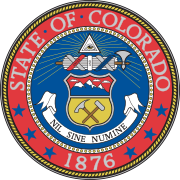Distribution of revenue
Casinos pay taxes on income from gaming and also pay various fees and fines. Last year, the state collected $112 million from gaming, an effective tax rate of 14 percent. After paying to enforce gaming laws, approximately one-quarter of the gaming money goes back to the gaming cities and counties, about one-quarter goes to historic preservation and restoration projects across the state, and half of the revenue is allocated to the state legislature to spend on programs. These programs currently include assistance to local governments for gaming impacts, tourism promotion, economic development programs, energy efficiency, and renewable energy projects, and highway projects.
Amendment 50 distributes new money from increased gaming activity differently from existing law. First, the casinos keep 86 percent. The 14 percent in tax revenue is then used to pay to enforce gaming laws related to any changes in the limits. Second, some of the new money provides annual increases to the programs and local governments that currently get gaming money. The rest is distributed as follows:
- 78% for financial aid and classroom instruction at Colorado community, junior, and district colleges based on each school's number of students
- 12% to Gilpin and Teller Counties, based on the proportion of the new money raised within each county, to help address the impacts of gaming
- 10% to Central City, Black Hawk, and Cripple Creek, based on the proportion of the new money raised within each town, to help address the impacts of gaming
Estimated distribution of new gaming money under Amendment 50 in millions of dollars [1] [4] | Amendment 50 Recipients | Year 1 | Year 2 | Year 3 | Year 4 | Year 5 |
|---|
| Additional money to current recipients | $2 | $3 | $4 | $4 | $5 |
|---|
| Community colleges | $29 | $32 | $46 | $52 | $63 |
|---|
| Black Hawk, Central City, and Cripple Creek | $4 | $4 | $6 | $7 | $8 |
|---|
| Gilpin and Teller Counties | $4 | $5 | $7 | $8 | $10 |
|---|
Editorial opinions
An editorial in the September 29, 2008 edition of The Denver Post advocated voting against the proposed amendment, noting that it would "help an exceptional cause — Colorado's under-funded community colleges — but it would do so at a cruel and unfortunate cost." The paper noted that it had endorsed the expansion of gambling into these mountain communities in the early 1990s, only to have "seen the character of the once-charming towns destroyed". [5]
An editorial in the Oct. 5, 2008 edition of The Aurora Sentinel endorsed the measure, pointing out the gambling industry had grown up in Colorado and state residents deserved to reap the benefits of that. Even if the benefits of this measure didn't hit so close to home in Aurora, the initiative is a good idea to preserve the economic health of this important tourism industry. The paper noted that the city's own community college badly needs the revenue. [6]
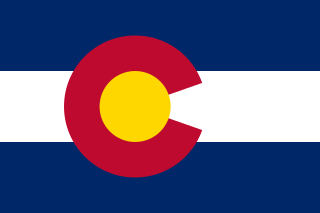
Colorado is a state of the Western United States encompassing most of the southern Rocky Mountains as well as the northeastern portion of the Colorado Plateau and the western edge of the Great Plains. It is the 8th most extensive and 21st most populous U.S. state. The estimated population of Colorado was 5,695,564 on July 1, 2018, an increase of 13.25% since the 2010 United States Census.

Centennial is a Home Rule Municipality located in Arapahoe County, Colorado, United States. The city population was 100,377 at the 2010 United States Census. Centennial is a part of the Denver-Aurora-Lakewood, CO Metropolitan Statistical Area. Centennial is the tenth most populous municipality in the state of Colorado and its 2001 city incorporation was the largest in U.S. history. Centennial is ranked as the 15th-safest city in the country.
The Taxpayer Bill of Rights is a concept advocated by conservative and free market libertarian groups, primarily in the United States, as a way of limiting the growth of government. It is not a charter of rights but a provision requiring that increases in overall tax revenue be tied to inflation and population increases unless larger increases are approved by referendum.

A racino is a combined race track and casino. In some cases, the gambling is limited to slot machines, but many locations are beginning to include table games such as blackjack, poker, and roulette.
The Central City Parkway is a four-lane highway in Colorado, running from I-70 near Idaho Springs to the historic mining town and gambling area of Central City. Opened on November 19, 2004, the Parkway provides direct access to Central City. The length of the Parkway is 8.4 miles (13 km), and it can be traveled in about twelve minutes. As part of the opening ceremonies in 2004, 1996 Indianapolis 500 winner, Buddy Lazier, made the trip from I-70 to Central City's historic downtown in three minutes.
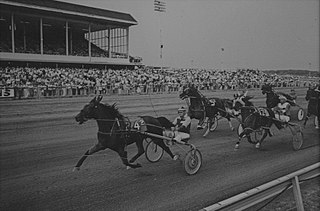
Vernon Downs is a horse racing track, racino and entertainment facility located in the town of Vernon in central New York. The track was established in 1953 and in 1955 was the location that Adios Harry ran his "Miracle Mile". As tastes changed and competition increased, its attendance and revenues decreased. It has added simulcast harness racing, video gaming, and entertainment, in addition to building a 173-suite hotel.

Colorado Amendment 51 was a citizen’s initiative proposed by Wendy B. Rosanova of Centennial, CO, and Marijo Rymer, executive director of The Arc of Colorado. It was turned down by 62.4% of the voters. If it had passed, Amendment 51 would have amended the Colorado statutes to:

Initiative 126 or the Savings Account for Education Initiative will appear on the ballot as Amendment 59. The measure would create a savings account within the State Education Fund, to be funded from 10% of the monies deposited into the State Education Fund, including revenue that would otherwise be rebated under the TABOR rules, which the measure calls for diverting to the State Education Fund.

Amendment 58 was a proposed initiative on the Colorado ballot of 2008 regarding Colorado's severance tax. It was turned down by 57.9% of the voters.
Gambling in Pennsylvania includes casino gambling, the Pennsylvania Lottery, horse racing, Bingo, and small games of chance conducted by nonprofit organizations and taverns under limited circumstances. Although casinos gaming has only been legal for about a decade, Pennsylvania is second only to Nevada in commercial casino revenues.
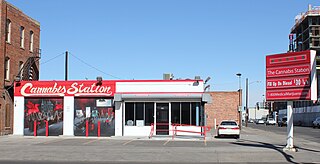
Cannabis in Colorado refers to cannabis use and possession in the state of Colorado. The Colorado Amendment 64, which was passed by voters on November 6, 2012, led to legalization in January 2014. The policy has led to cannabis tourism. There are two sets of policies in Colorado relating to cannabis use: those for medicinal cannabis and for recreational drug use along with a third set of rules governing hemp.
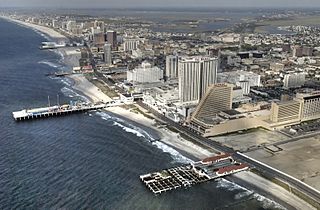
Gambling in New Jersey includes casino gambling in Atlantic City, the New Jersey Lottery, horse racing, off-track betting, charity gambling, amusement games, and social gambling. New Jersey's gambling laws are among the least restrictive in the United States. In 2013, the state began to allow in-state online gambling. Five years later, the state won a lawsuit that dismantled Nevada's monopoly on legal sports betting.

Colorado Amendment 64 was a successful popular initiative ballot measure to amend the Constitution of the State of Colorado, outlining a statewide drug policy for cannabis. The measure passed on November 6, 2012, and along with a similar measure in Washington state, marked "an electoral first not only for America but for the world."

Hollywood Casino Columbus is a casino located in Columbus, Ohio. It opened on October 8, 2012. It is owned by Gaming and Leisure Properties and operated by Penn National Gaming.
The New Jersey casino expansion amendment (2016) was a proposed constitutional amendment in New Jersey that would have allowed casino gambling outside of Atlantic City.
This page is based on this
Wikipedia article Text is available under the
CC BY-SA 4.0 license; additional terms may apply.
Images, videos and audio are available under their respective licenses.
